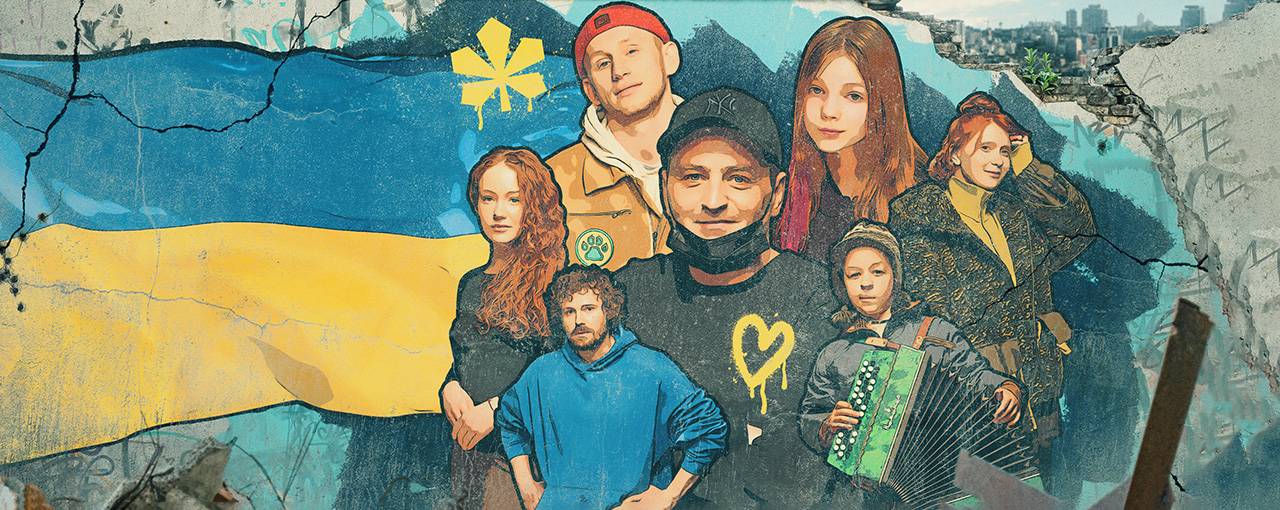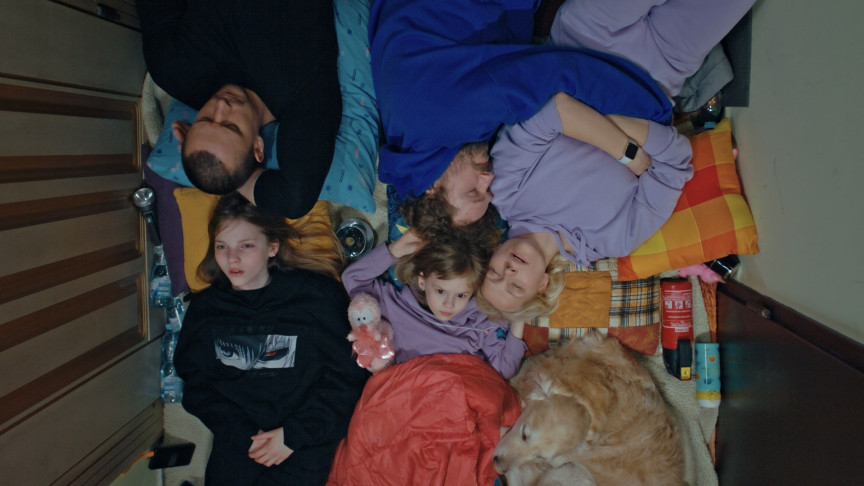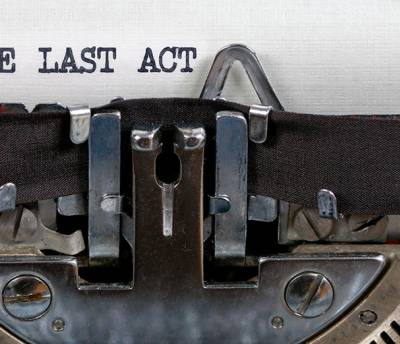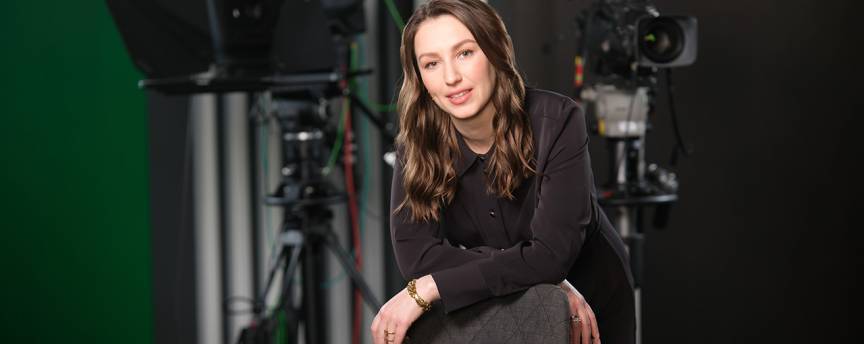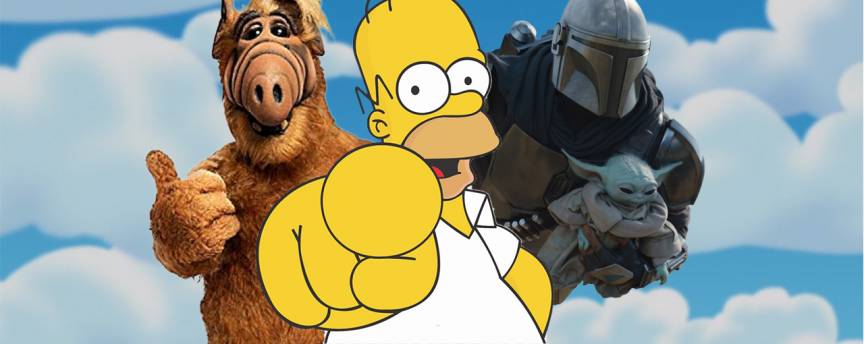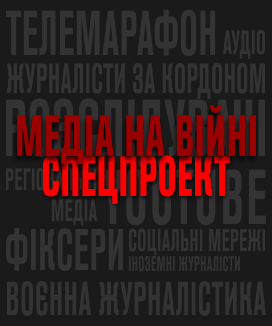On November 1st, the Ukrainian drama series Those Who Stayed (“The First Days” – Ukrainian title) premiered on Netflix in nearly 20 European countries. This series was created through a co-production with the German studio Red Arrow Studios International and the key broadcasters from Finland (YLE), Sweden (SVT), and Norway (NRK). This is an unprecedented case as never before has a Ukrainian drama project, especially one based on real events, premiered in Ukraine and across numerous European countries on the most powerful global streaming platform.
However, this project has many unique aspects: record-breaking development and production timelines, an atypical for Ukraine anthology format, the collaboration of six directors under the guidance of a single showrunner, and, of course, a co-production scheme involving multiple international partners. One of the project's producers, Kateryna Vyshnevska, Head of Development and Co-production at FILM.UA Group, and the idea's author, showrunner, and screenwriter, Anastasiia Lodkina – told us about all the most interesting production and creative aspects of this unique case.
But first of all, let's talk about the project, directed by Artem Litvinenko, Tala Prystaetska, Pavlo Ostrikov, Oleksii Yasakov, Valentyn Shpakov, and Katya Tsarik.
Those Who Stayed is an anthology series consisting of six 30-minute episodes, each of which tells a separate story of people who, for various reasons, decided to stay in Kyiv at the beginning of Russia's full-scale invasion.
There is a story about a woman who, with her children, is forced to live in the same house with her two husbands: the current one and the ex. There is also a story about a family of two women and their young son, with a bunch of pets, who got separated on the first day of the war. There is a story about a zoo employee who gets stuck at work with all the animals (based on the true story of the "12 Months" zoo in the Kyiv region, where several hundred animals, along with residents, were held captive by the enemy for over a month with no food, light, gas, electricity, and communication). There is a story about a German man who comes to Kyiv to retrieve his girlfriend but instead joins a volunteer movement. Another episode tells the story of a homeless person who wants to join the Territorial Defense while taking care of a young boy. A story about a famous artist who livestreams moral support content from his apartment in the heart of the capital (based on the story of Andriy Danylko, a well-known Ukrainian artist-comic, a resident of the famous House with the Star, one of the architectural landmarks on Khreshchatyk, the main street of Kyiv, the capital of Ukraine).
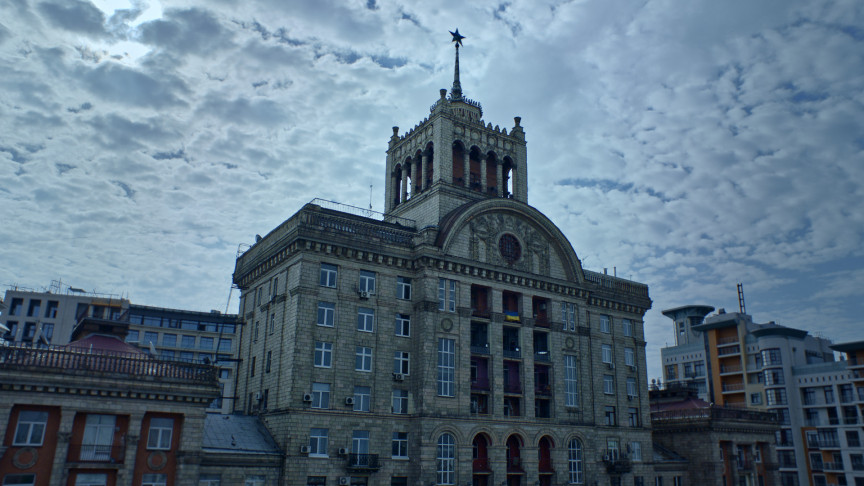
Shot from the episode “A House with A Star”
Kateryna Vyshnevska emphasizes that, although for the international market, the project is named Those Who Stayed, in Ukraine, it is referred to as "The First Days" to avoid "separating one group of Ukrainians from another, as any decision – whether to leave or stay – was not easy for any of us."
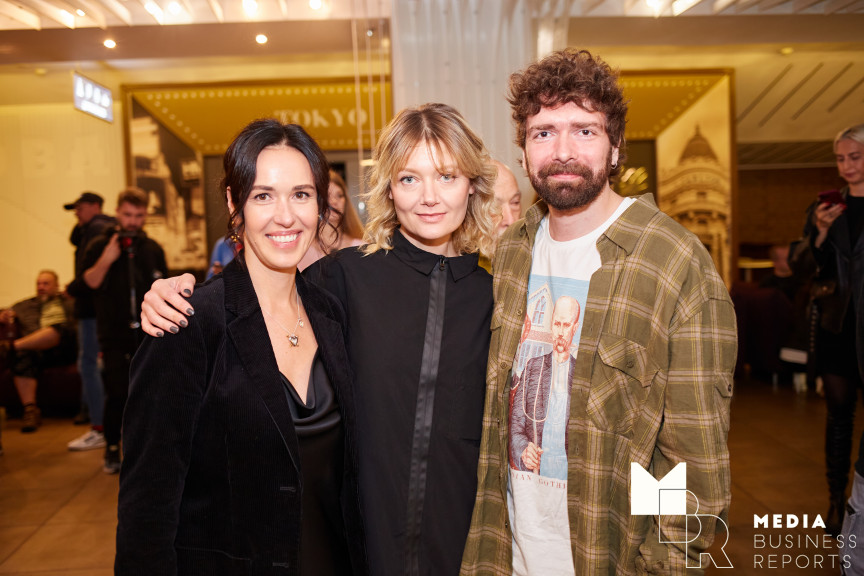
The producers of Those Who Stayed, Kateryna Vyshnevska (in the center) and Anna Eliseeva, with director Oleksii Yesakov at the pre-premiere screening of the series, which took place at a cinema in Kyiv a week before the project's release on Netflix.
There's yet another aspect regarding the title. "In September, we were in the Czech Republic, at the Serial Killer festival in Brno. We were discussing the series with Czech and Estonian television (also partners in our project), and they liked the name 'The First Days,'" the producer explains. "After more than a year and a half of a full-scale war, the early days of the full-scale war are slowly fading from memory. Our project serves as a reminder of those uncertain times when our very existence was in question." By the way, the idea for the Those Who Stayed project was born less than a month after February 24, 2022. But more on that in due course.
The Genesis of the Idea and Project Commencement
The project idea was born in the FILM.UA Group corporate chat, which, at the outset of the invasion, much like any other Ukrainian work or friend group chat, was filled with questions like "How are you? Where are you?"
"FILM.UA work chat was indeed very supportive; people were always in touch," recalls Anastasiia Lodkina. "We were very concerned about our colleagues who stayed in Kyiv or the region, like Yegor Borshevsky [the director of POSTMODERN Digital company], who was out of touch for several days: we knew he was in Irpin, hiding somewhere in a basement... It was in this chat that someone mentioned the '12 Months' zoo. We constantly shared various stories there, so one day it occurred to me to compile them into a common concept. I remember how on March 17, 2022, I put together and sent a letter to my colleagues, in which I collected the stories we had discussed in the chat, and added those I had heard from my acquaintances, such as the story of a woman who is forced to live with her current and former husbands and the children from these marriages. Colleagues began to offer their ideas."
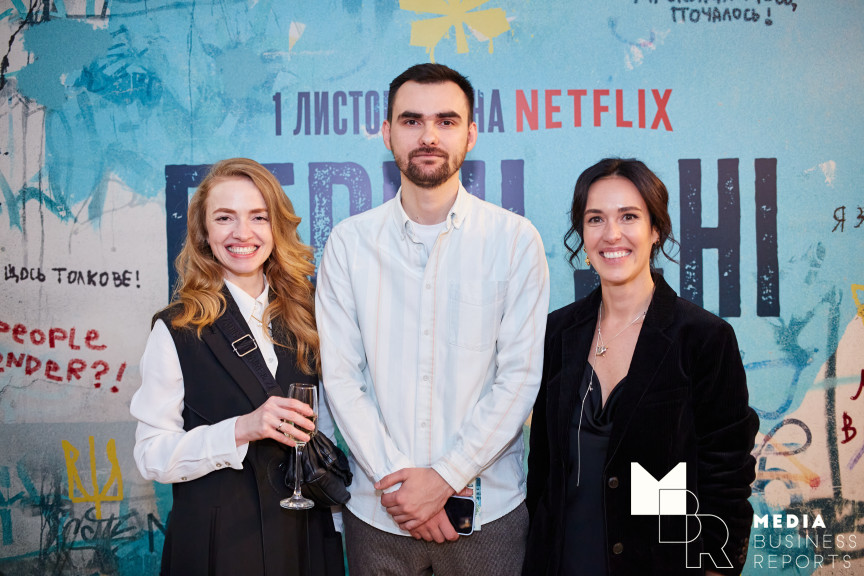
Showrunner Anastasiia Lodkina (on the left), director Pavlo Ostrikov, and producer Anna Eliseeva
Anastasiia mentioned that, during that period, the idea of any production was far from anyone's thoughts because, as she put it, "we didn't know how even the next month would end." However, at the same time, there was an understanding that, somehow, it was necessary to tell "the stories of all these people, and about this zoo, and about Danilko, who sits all alone in that House with the Star – and everyone knows where he lives. It was easy to imagine how Russian soldiers would knock down his door, and ask about all his jokes about them."
Kateryna Vyshnevska joined the project at the birth of the idea, as she is also part of the same FILM.UA chat. Kateryna is a constant resident of London, but at the beginning of the full-scale invasion, she happened to be in Kyiv. "When we were leaving, my family and I first went to Moldova, then to Romania, and from there, there was a long journey back home to London," she recalls. "And on this journey at the end of March 2022, I managed to get to France for the Series Mania TV series festival, where I brought the project concept and started testing it. We already understood that we have no right to stop; we need to continue working, creating, and telling stories because this is our resistance."
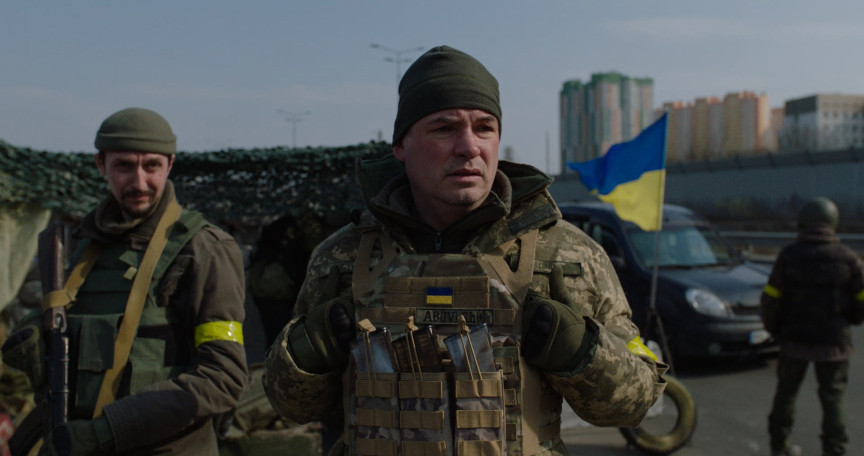
Shot from the “Homeless” episode
At Series Mania Vyshnevska found the project's first partners – the powerful international distributor, the German company Red Arrow Studios International. In the spring of 2022, a co-development agreement was signed with Red Arrow. Typically, Ukrainian producers seek co-production partners with a script, a character bible, the necessary documentation, and so on. However, understanding the situation in Ukraine and the importance of telling these stories as soon as possible and supporting Ukrainian talent, Red Arrow took a proactive approach, and with their assistance, work on the scripts for all episodes began immediately.
Script Development and Director Selection
The scripts for the episodes were written during the summer and fall of 2022. "We immediately decided that it would be great to involve various directors and showcase Ukrainian talents and voices," recalls Anastasiia Lodkina. "We were very director-driven, so we offered the collected stories to the directors: some took one from our selection, while others proposed their own and wrote it themselves."
Notably, among these director-screenwriters were Artem Litvinenko, Pavlo Ostrikov, and Tala Prystaievska, for whom Those Who Stayed marked their directorial debut. "We strongly recommended the zoo story to Artem Litvinenko right from the start," shares the showrunner.
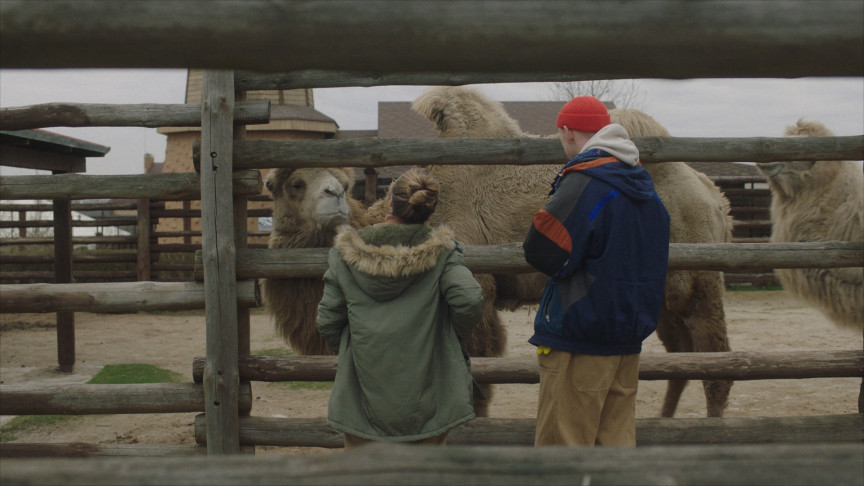
Shot from the episode “In the Zoo”
Anastasiia continues: "We knew how much of a perfectionist Artem is in preparing for the shoot, so we wanted to entrust him with such a complex episode that included filming unpredictable animals. Artem agreed to direct it, and he also wrote the screenplay. As for Pavlo and Tala, they went through our list of suggestions, but came up with different, more personal, and beautiful stories of their own."
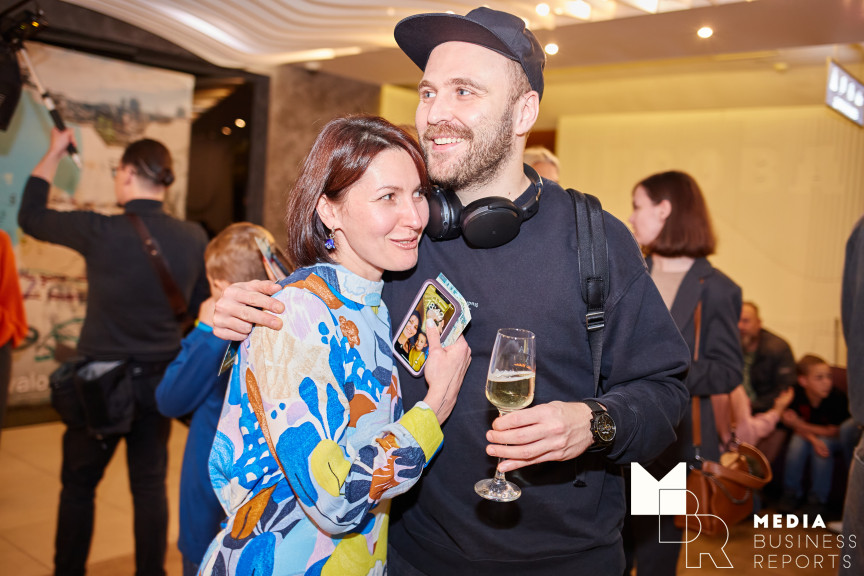
The screenwriter and showrunner, Yevhen Tunik (known for First Swallows and In Her Car) is congratulating the debut director Tala Prystaievska on the premiere
Lodkina confessed that they wanted to involve Antonio Lukich in the project. "He had his own story, and he was ready to write it but not direct it because of scheduling conflicts. However, we needed all of him. Now I understand that maybe we should have worked out an agreement with him for writing, and then he would have fallen in love with the story and agreed to direct it. I gained a lot of experience working with directors – as many as six in one year! – so now I understand better how it works," the showrunner explains with a smile.
Anastasiia Lodkina wrote the scripts for the episodes directed by other project directors, including Oleksii Yesakov, Valentyn Shpakov, and Katya Tsaryk, either by herself or in collaboration with Serhiy Lushchyk (for the episode Kyiv-Berlin). By the way, for Tsaryk, a director known for music shows, awards, and music videos, Those Who Stayed also marked her debut in a television series.
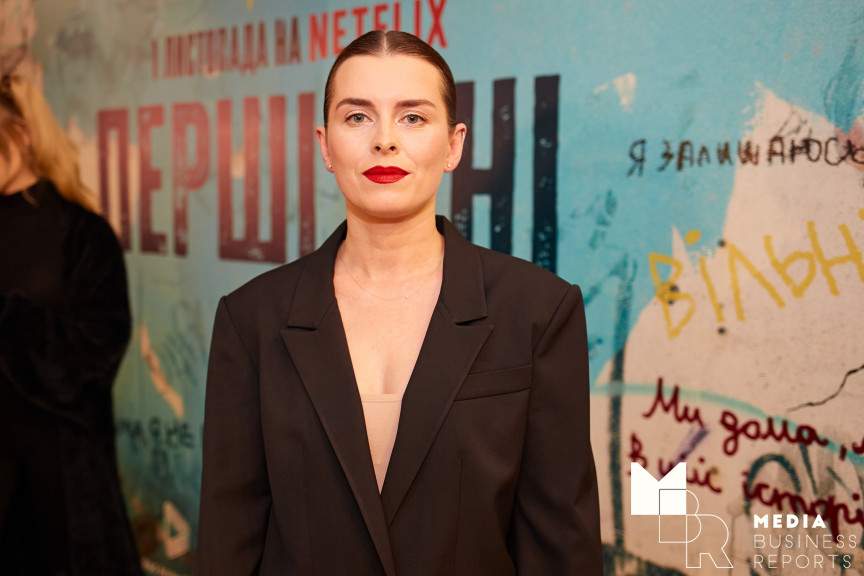
Another debutant, Katya Tsaryk
"Actually, Katya isn't entirely a newcomer. She has a short film that clearly shows she's a talented director with her own unique voice," the showrunner responds when asked if it was risky to involve a director without specific experience in such an important project. "I've been keeping an eye on Katya for a while and wanted to work with her. Plus, she has a creative partnership with cinematographer Yuriy Korol... I felt like some kind of magic had to happen – and it did. Also, Katya has a friendly relationship with Andriy Danylko, who is the unofficial, not literal, but a prototype of the character in the story that she was shooting."
Building Production Processes in Ultra-Short Timelines
Overall, from the inception of the idea to the actual onset of the shooting period, which lasted a total of 33 filming days, less than a year passed. How was it possible to achieve this? Kateryna Vyshnevska explains the project timeline.
The selection of authors and the scriptwriting took place during the summer and autumn of last year. But there was also a process of alignment with Red Arrow partners, so all six scripts were finalized in December 2022. "The end of the year is such an inconvenient time: Christmas and financial reporting. Back then, we felt like we couldn't do anything: which of the potential partners would want to look at these scripts now? Who would be making decisions? So, we had to wait till the next year. It was nerve-wracking. We had too little time, and we felt the need to tell our stories right now, not in a year. But January 2023 passed, and everything started moving as quickly as possible, with several processes in parallel," the producer explains.
First, in January 2023, Finland's national public broadcasting company, Yle, confirmed its participation in the project. "They just sent a message on WhatsApp: 'We are in,'" Vyshnevska recalls. Next, Sweden's public television organization, SVT, also confirmed its involvement. Later on in the same month, at the Gothenburg Film Festival, where the project Those Who Stayed was presented in the TV Drama Vision industry section, Norway's national public broadcasting company, NRK, joined the partnership. "In our project presentation, we only had the logos of Yle and SVT, but the Norwegians confirmed everything so quickly that we managed to add a third logo. Now almost all of Scandinavia was with us!" Kateryna mentions.
A bit later, the project received additional funding from presales of the license for airing on the national French broadcaster France TV, the public broadcasters of Iceland and Denmark (RUV and DR, respectively), and the major distributor in the Benelux countries, Lumiere.
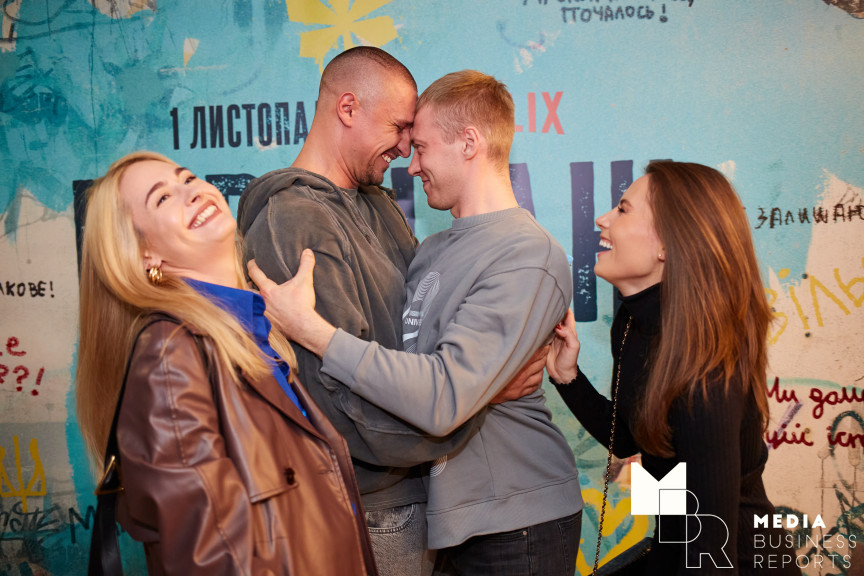
Actors of the series Those Who Stayed: Antonina Khyzhniak, Hryhorii Baklanov, Taras Tsimbalyuk, and Anastasiya Tsymbalaru
Pre-production started in February. "One thing is to have confirmation in WhatsApp or email, and a completely different thing is a signed contract, especially with the national broadcasters. Our partners are very large companies, and of course, things don't happen so quickly with them. Getting the funds for production on time was the most challenging issue for everyone, but thanks to Red Arrow, it was resolved. Many, in fact, everyone, believed in us then. Including FILM.UA studio. They believed that we have the capability to do this," says Vyshnevska.
Such haste was driven by nature and locations: Those Who Stayed depicts the Kyiv region at the beginning of the full-scale war – from February 24th to the liberation of the region on April 2, 2022. Accordingly, filming all of this in May when Kyiv is already in bloom would have been impossible. "We had a clear understanding: either now or never," says the producer. "This story couldn't wait for another year."
The project entered production in March. The chosen anthology format helped expedite the filming process – it allowed the shooting of various episodes simultaneously. "So we shot everything with two blocks of three episodes each, and from summer to mid-September 2023, we worked on post-production and delivered the materials," concludes Vyshnevska.
Such intensive production required significant investment. However, the creators of the series repeatedly emphasized that they managed to make the series cost-effectively without compromising quality. What production tricks contributed to this? "First of all, it's important to clarify – is it cost-effective for the Ukrainian or the international market?" emphasizes Kateryna Vyshnevska. "As Anna Eliseeva said in an interview once – the budget of our project is higher than the average on the Ukrainian market – especially now, during full-scale war. However, it is much lower compared to the European market's norm for such projects."
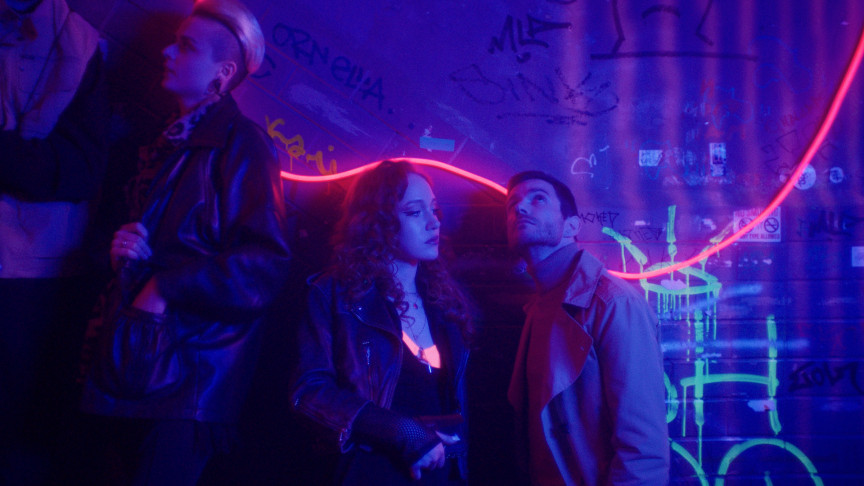
Shot from the episode “Kyiv-Berlin”
As for the production tricks, the producer identifies two aspects: "Firstly, every person on the team genuinely wanted to tell this story. When you do something that you not only have but also want to do, it somehow turns out better. It is not even a producer's trick but more of a life hack. Secondly, this could probably only happen during the war because there was less production in the country, and the best specialists were available. We had a feeling that not only actors went through casting, but it was conducted for literally every position. That's why every person on the production team is simply the best person who could be in that place. And it shows when you watch the finished product."
The Absence of a Shortage of Talent
One of the significant challenges that is increasingly discussed in the Ukrainian industry is the talent shortage due to the full-scale war. However, the team behind Those Who Stayed did not experience this shortage. "We were concerned about it before the start of filming: we knew that many women had left, cameramen went to the front, actors... And we needed to complete the entire casting in three weeks, even though it usually takes months to find just the main characters," recalls Anastasiia Lodkina. "But in the end, we had several excellent options for almost every role!"
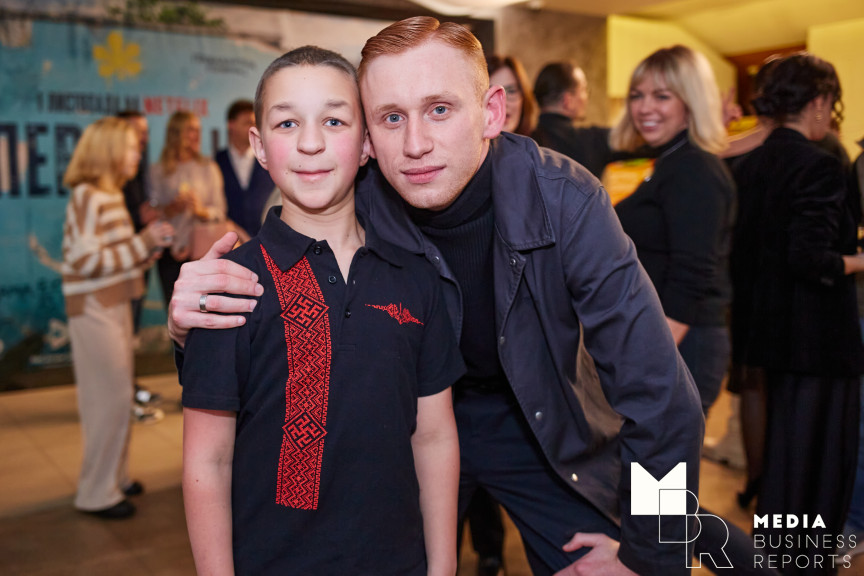
The young actor from Those Who Stayed, Mykhailo Korzhenivskyi, and his senior colleague, Oleksandr Rudynskyi
The showrunner mentioned that this project gave her a sense of the blossoming of Ukrainian talent after the end of cooperation with Russia. "Everything blossomed! A real renaissance!" she confesses. "At first, a large number of seemingly unknown actors with incredible talents appeared out of nowhere. Then came the directors, and cinematographers. Before, it seemed like they existed, but there were few of them, and you had to fight for them because they were constantly busy. And now, there are so many of them! Personally, for me, this has been a significant discovery this year: I suspected it, but I didn't have the opportunity to verify it in practice to this extent. And here we shot six films with six different but equally powerful teams."
Edits from Western Partners
No matter how much creative freedom the showrunner has, a large co-production project intended for the international market can't be done without partners’ approval.
Only the co-production partners – Red Arrow, Yle, SVT, and NRK – had the right to make adjustments, and they used it very cautiously. "Everyone had a heartfelt attitude towards the project – we felt it on an emotional and personal level," says Vyshevnska. "Of course, we made the story appealing to their audience, but at the same time, we took into account that it's about a personal human experience. And they don't have that experience. What can a hypothetical Swede who has never seen war comment on someone who spent days in a bomb shelter? The partners themselves understood this, so they were very conscientious about the edits. But at the same time, their collective experience was a tremendous help to us. We are really grateful to our partners for their comments."
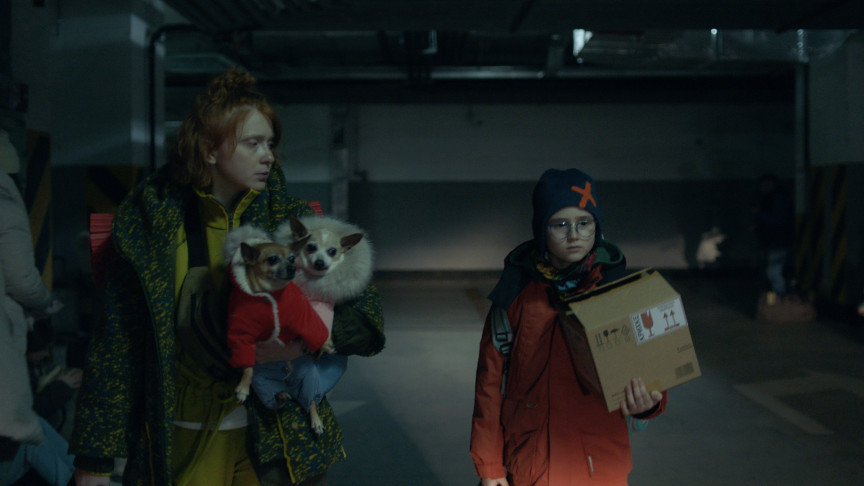
Shot from the episode “Moms”
What exactly did the Western partners amend? Perhaps jokes, which, even in a limited and complex subject matter, were added to the project - cause humor doesn't always "travel" well? "I was actually very impressed that all those little moments where we could allow ourselves some irony and light humor didn't raise any questions," says Anastasiia Lodkina. "The partners read it and commented that it's funny, cute, and works well. So, we realized that the difference between us isn't as great as we were always made to believe."
Overall, the revisions mainly revolved around explaining certain cultural and mentality differences, as well as the experience of living through a war. "There were some delicate but sincere questions from the partners – why does this character behave so helplessly, why is this heroine so hysterical, especially since she has a child? And our answer was because people behaved this way when they woke up from explosions," says Lodkina. "Not like movie heroes but like real vulnerable people in a state of shock. When you desperately want to protect your child and explain everything to them, to reassure them. But all you can do is hide your tears from them and allow them to play on their phone for eight hours straight so they won't be afraid, won't think about the bad things, and won't see their parents falling apart."
Shot from the episode “Family”
But overall, it can be said that there were more cultural, every day, and value-based similarities than differences. "I think Western partners were surprised that they could identify with our characters," Lodkina emphasizes. "They didn't say it directly, but it felt like they were somewhat shocked. Shocked that these people, Ukrainians, live in the same kinds of apartments as they do and have essentially the same problems. They told us: 'This is just like me. It's like a war happening right next to me.' We talked a lot about what we wanted to convey to the world with our project. Both Kateryna Vyshnevska, Anna Eliseeva, and I encountered the same questions abroad: 'Why are you fighting?' and 'Why don't you give up?' And this is the first thing we wanted to show: why we don't give up. Why do people stay and decide to resist? We wanted to show that Ukraine is, in fact, a part of Europe in terms of values and civilization. And we are not some rebellious colony or a part of an empire; we are an independent country fighting for its values."
All the Partners and their Roles in the Project
In the co-production case of Those Who Stayed, the partnerships can be quite challenging to understand due to the constantly evolving developments. However, these partnerships have different statuses. "The official co-production partners include the Ukrainian studio FILM.UA, the Scandinavian broadcasters Yle, SVT, NRK, and the German company Red Arrow. The Scandinavian partners have contributed an equal amount of money, so they have parity as partners and obtain rights in their respective territories but do not claim a global share in the project. The rest of the countries are early-stage sales, licensing for a limited time in individual countries. And the list of these partnerships is constantly expanding," explained Vyshevska. In addition to the countries mentioned above, the Czech Republic, Estonia, and Australia also acquired licenses to broadcast the series in their countries. "This October, at the MIPCOM market in Cannes, we started selling the project to other countries," the producer added.
Funding from the Ukrainian side was secured through the support of the USAID-funded TCA Project and a partnership with the 1+1 Media Group. "We have a Ukrainian broadcaster - 1+1. They also helped us, join the project. The series will be broadcast on their channels later," said Vyshnevska. Moreover, even with the agreement with Netflix in place, 1+1 will have the opportunity to add the project to the library of their digital platforms, although not immediately.
Licensing for Various Countries in the Context of Selling to Netflix
Perhaps the most intriguing question is: how does licensing for different countries coexist with selling the project to the global streaming platform? "The series premiered on Netflix on November 1st in Ukraine and all Central and Eastern European countries. However, Scandinavia is not part of this region, so there is no conflict of interest, just as with France or Australia. As for the broadcasters in Estonia and the Czech Republic, they are part of the CEE region. But they joined the project very early, so Netflix, firstly, is aware of them, and secondly, it's television broadcasting, so it involves different rights. The same goes for Ukraine," explains Kateryna Vyshnevska.
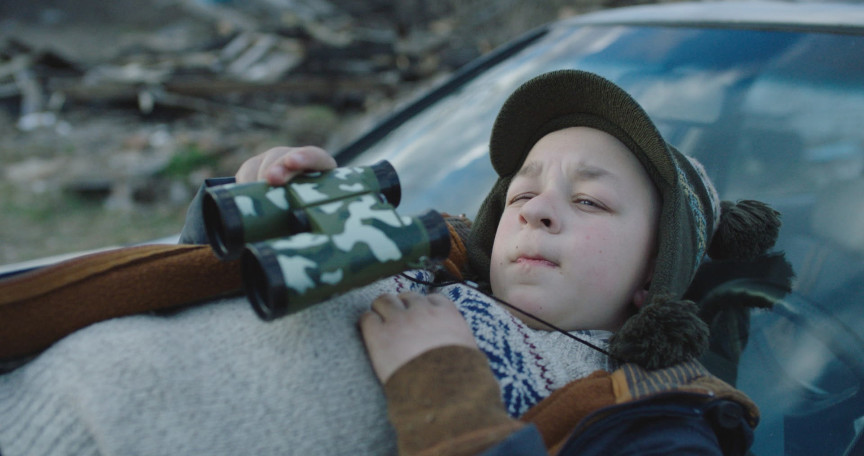
Shot from the episode “Homeless”
The producer also shared the latest news about licensing Those Who Stayed: the project was sold to Portugal, Japan, and Canada in Cannes. "In Canada, especially on English-language channels, Ukrainian content (or any non-English content) is almost not sold," emphasized Vyshnevska. "And our strategic goal is the United States: the most challenging territory, but we will be working on that."

